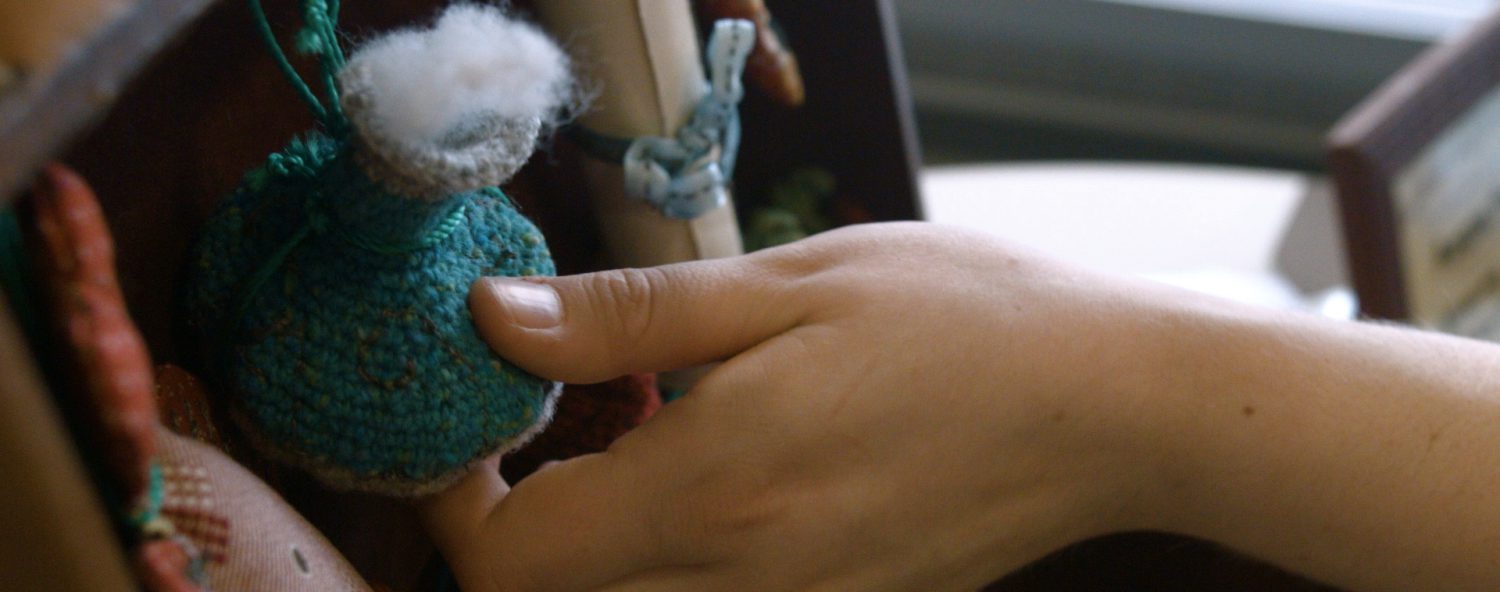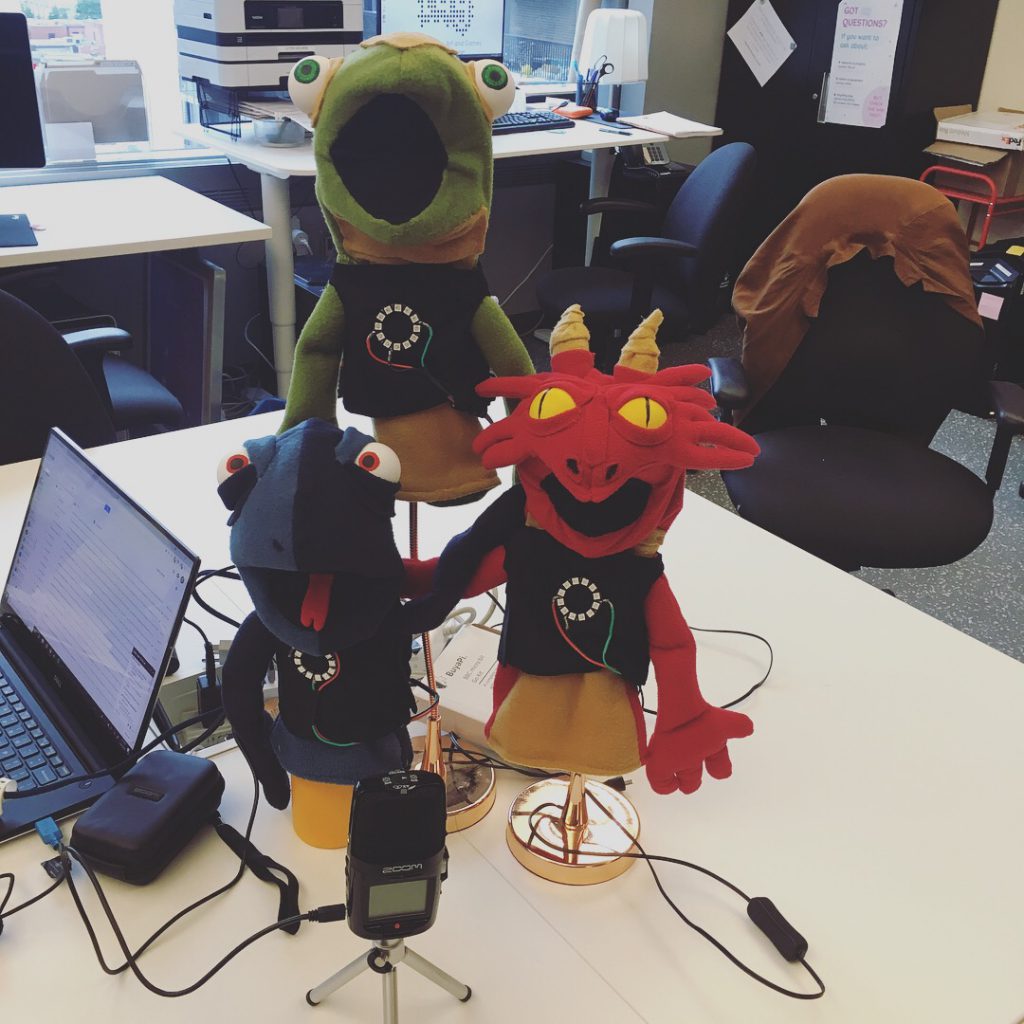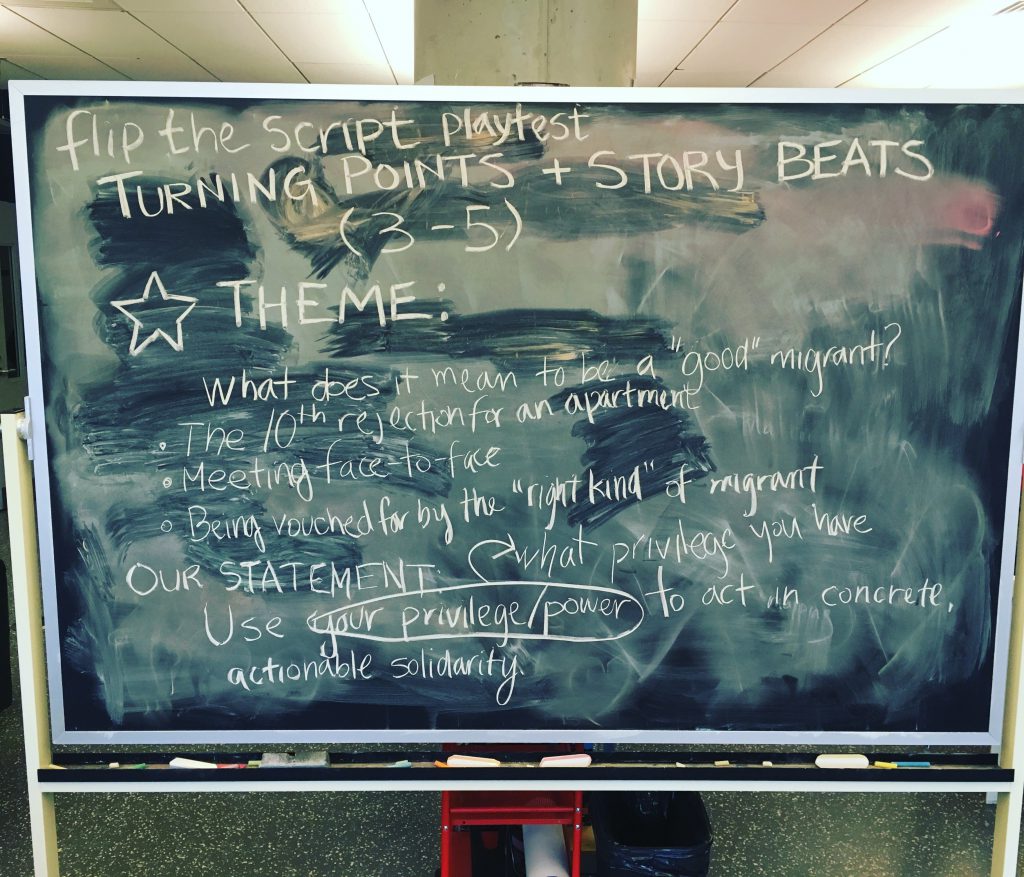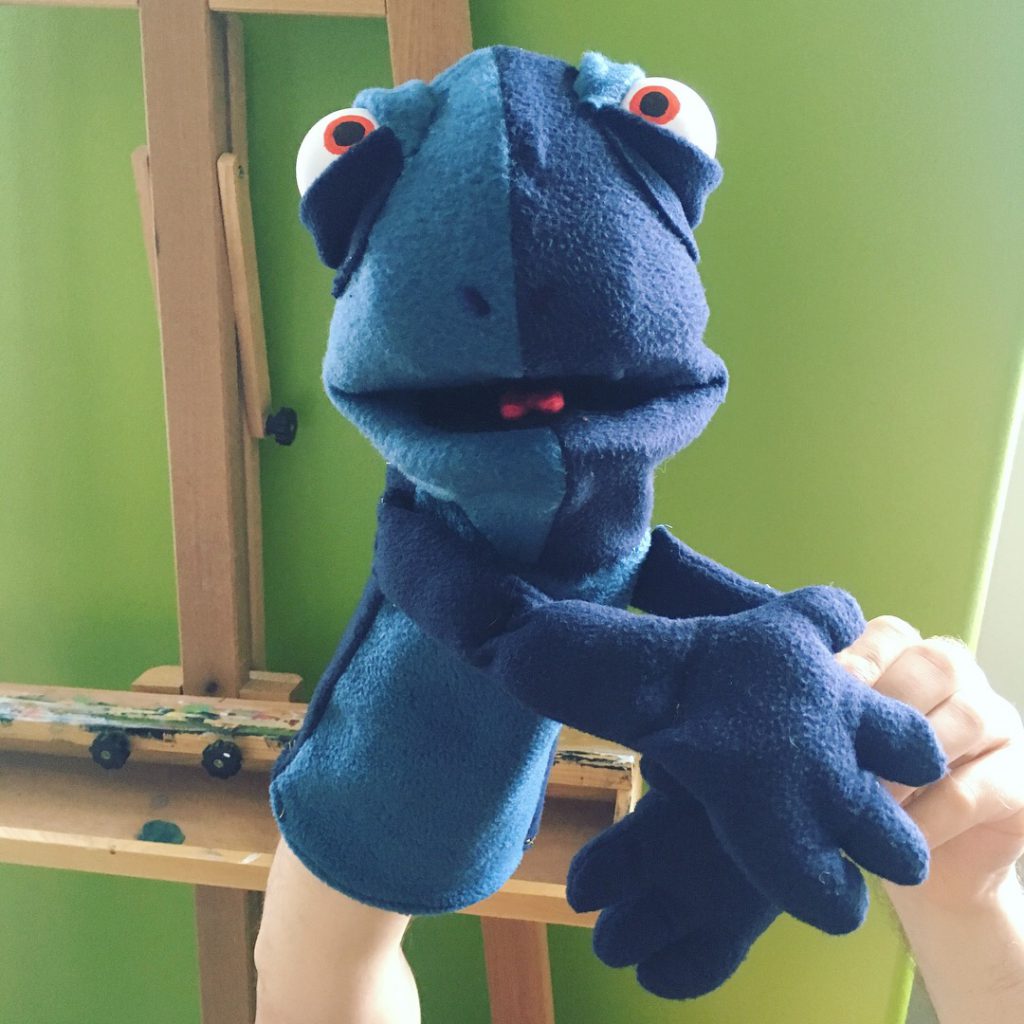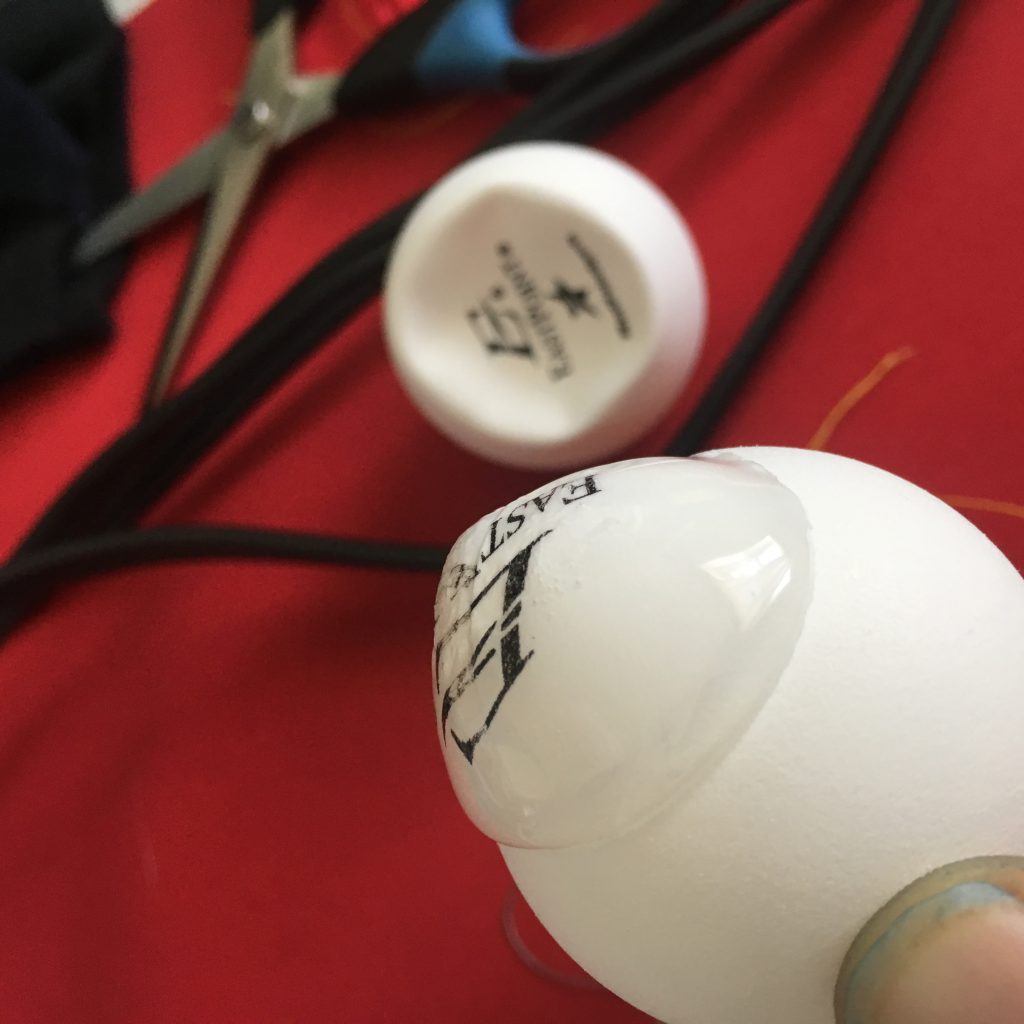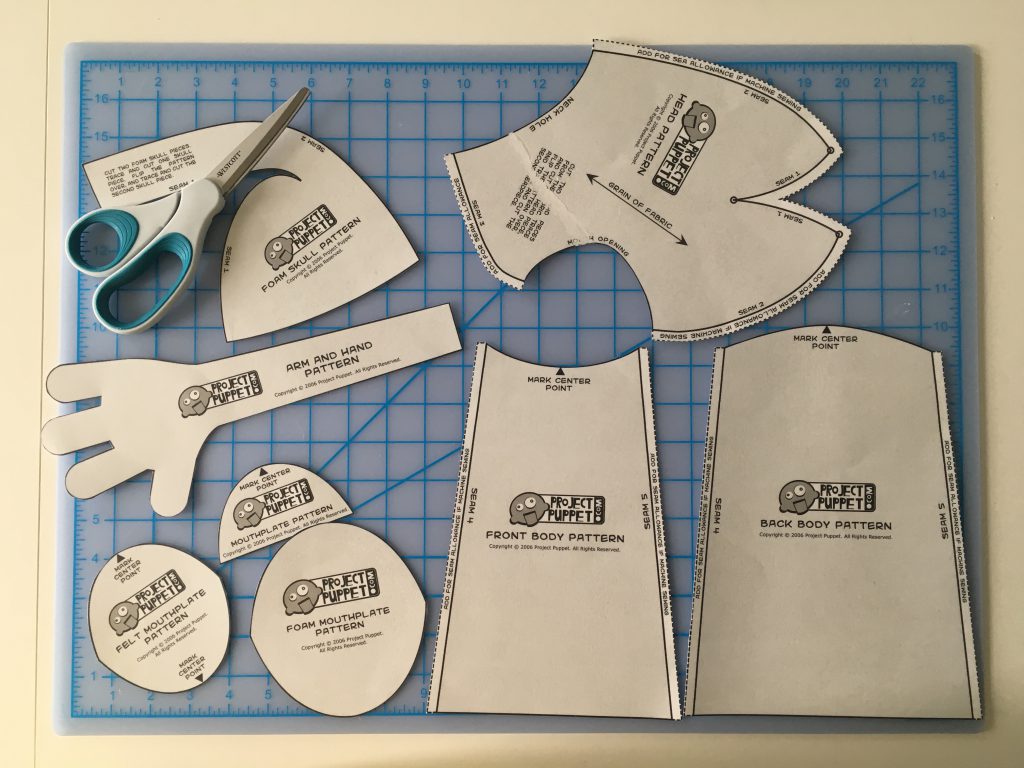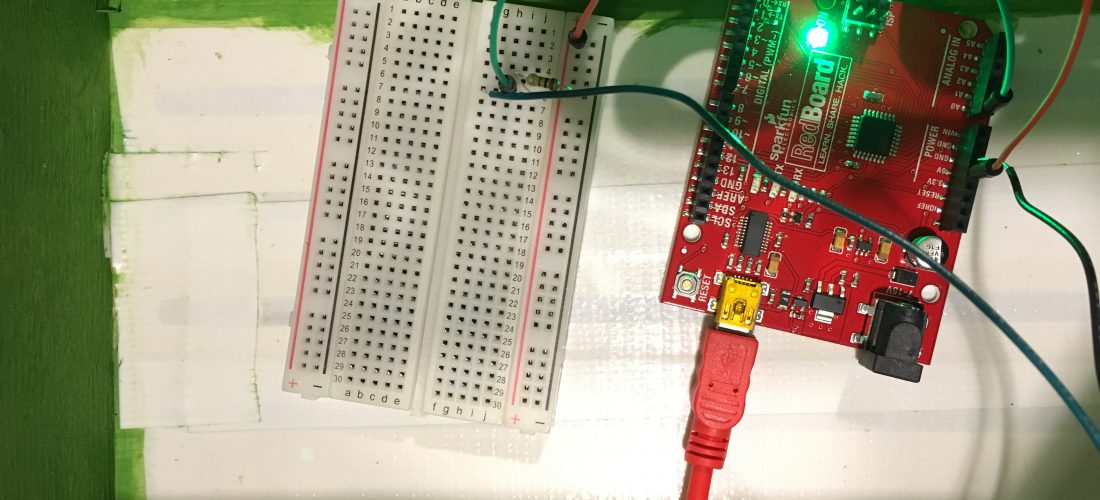I am trying to decide whether or not to pursue this idea of a game with puppets, and so I have been doing my best to generate ideas. As I said to Rilla, my supervisor, the other day, it is hard to recapture what the idea generation process has been like on other occasions — whether ideas took time to form or whether they formed, whole-hog, when working on my own. Keeping in mind that I document fairly rigorously and do a lot of writing about my work, this already begins to show me the added value of the autoethnographic processes that I am employing for my dissertation. I can’t imagine what it would be like to try to retrace my creative process if I weren’t documenting so much.
I ambitiously started out this list with the notion that I would come up with 100 of these ideas, but I’ve been at this since Tuesday evening, and I honestly think that I have got what I needed from the exercise. So, instead, I shortened the number to 50. Even coming up with 50 ideas was very challenging. Sitting in front of the computer and trying to generate ideas without distractions was worse than useless. I had to have input coming into my brain from all sorts of different sources in order to come up with anything that I found interesting — but that also meant not coming up with ideas and playing/experiencing/doing other things.
And it is hard to keep a record of the hundreds of things that one might encounter in one’s day to day life. In this case, I’m making a concerted effort, so I can say that I’ve consumed Korean boyband videos (BTS, specifically), I finished co-playing Wild Arms with Tom and have started Final Fantasy VIII, I had my tarot read by a friend and fellow academic, I have read a fair number of sad news articles related to a missing boy in Montreal, and to police brutality and abuses of the Canadian Justice system, I’ve played with my cat, listened to Welcome To Night Vale, pulled out my own Tarot deck for inspiration, as well as Rilla Khaled and Christopher Moore’s Onkalo/deep time-related “We Should Just” card project, as well as Padgett Powell’s Interrogative Mood, and I’ve done a heck of a lot of sketching.
Nevertheless, there are loads of blank spots here, and tiny tasks here and there, like grocery shopping, or answering emails, that are no doubt influencing my thinking. I guess even if I can’t unearth the whole of this…I dunno, creative artefact… that I’m trying to preserve, I have to settle for doing my best, and not worry too much about the gaps. There will always be gaps, right? Like the gaps between unverbalized thoughts and impressions and language, for starters, or all the processes going on inside my head that are outside of the scope of even a dedicated autoethnographic dissertation, and what I might have dreamt and forgotten about during the night.
Well, without any further musing for the moment… Here are 50 puppet game ideas, with or without digital aspects, and without regard as to whether the ideas are any good, or whether they are “critical”:
1. a game where the embedded microbits on the puppet change colour and give simple (or not simple) behaviour cues for players to follow (possibly a mood change)
2. a game where players dress the characters up according to a specific set of rules that is reflected in play — possibly character roles, possibly something to do with gender roles
3. a game where you learn the basic rules and approaches to puppeteering
4. a game where you have to convince a small child that the puppet is a living and breathing entity
5. a puppeteering game where the first person to laugh loses a point
6. Coffee: A Misunderstanding, but with the puppets puppeteering puppets and trying to throw their voices
7. Rockband/Guitar Hero but with puppets and their actions and dialogue, or lip-synching songs
8. A Puppet Cooking Show where there are different connections and switches which are closed/open based on where you place the materials down.
9. A game about the uncanny valley but from the puppets’ point-of-view
10. A game where you reenact famous scenes from movies or moments in history, but with puppets.
11. A game with very flirty puppets who are trying to teach humans how to flirt
12. Puppets singing songs about gender from musicals (ie Mulan’s “I’ll Make a Man Out of You”)
14. A dress-up game where you have to dress the puppets according to a stereotype based on the available clothing
15. A game where you have to have awkward holiday dinner conversations and each player puts words in their puppet’s mouth that they might expect to hear from a particular diner (i.e. the racist uncle at Thanksgiving trope)
16. A game where puppets representing the able-bodied, ridiculously-athletic characters from video games talk about their invisible chronic pain and how they still can’t stop performing if the players won’t stop playing.
17. A game where puppets build a Utopia together & we get to see what players define their Puppet’s Utopia as.
18. A game where some puppets are ocean creatures and some puppets are plastic from the Great Pacific Garbage Patch, and the plastic has to kill off the ocean creatures by convincing them to eat them (i.e. a plastic bag pretending it is a jellyfish).
19. A game about climate change denial where a digital thermometer slowly heats up and the players simulate the effects on their world through the magic of theatre, while others play politicians and other humans trying to deny that it is happening or that it is our fault. At the end of the game, everyone loses. The lobbyists and politicians are entombed with their piles of money.
20. A game about the idea that “infinite growth is the ideology of the cancer cell”
21. A game where humanity is on trial and there’s no one left to defend it
22. The spiritual successor to Magical Girl Olympics, except it’s Eidolon, Aeon, Guardian, etc, transformation sequences.
23. To recreate famous paintings with puppets.
24. Friends use puppets to do impressions of each other, highlighting their best qualities.
25. A game where you make a very padded puppet, convince your cat it is alive, and wrestle your cat with the puppet
26. a game about the anatomy of puppets
27. Puppets deconstructing 50 Shades of Grey together & talking about consent, BDSM, and kink
28. A game where humans are practically extinct and puppets must build a new society together. What is a puppet idea of Utopia?
29. A game where puppets are jealous of human agency and want to puppeteer/take control of them! Jinkies!
30. A game about Kpop fan culture where all the puppets are secret boyfriends (fanservice and perceptions and queerbaiting).
31. A game about queerbaiting in the media where the puppets perform typical queerbaiting activities
32. A game where a player tells a story about a dream that they had recently, and puppets reenact the dream, even the parts that don’t make very much sense.
33. a game about negotiating consent between a puppeteer and the puppet– “you’re going to put your hand WHERE?”
34. A puppet seance where the humans are spirits who possess the attendees
35. A Sesame Street rip-off regarding gentrification and social justice (& Oscar the Grouch)
36. A game where you use puppets to tell stories from your ancestors/grandparents.
37. Wipeout, but you’re trying to contort puppets into the correct shapes.
38. A game where the Puppets can transform into other kinds of puppets to show their affective responses (like the double-headed doll I have from my aunt that has a happy side and a sad side).
39. Zombie Puppet Game: a game where the virulent PUPT Virus — an even more catching version of the IMPRV Virus, causes people to spontaneously become puppeteers. “Infected” players have to hide their status in creative ways to pretend they’re not infected and then suddenly reveal their puppets to non-infected players to turn them into puppeteers.
40. A game where three people control 1 puppet, representing various forces in the world acting upon us humans when we “try to do the right thing”
41. A game about the similarities and differences between puppets and avatars.
42. Debate club, but with puppets.
43. Human Dressage for the Distinguished Puppet — Players play puppets leading the human puppeteer through an obstacle course.
44. Puppets doing their own action-movie stunts.
45. Puppet Hair Salon where the puppets cut hair in the same way that Cookie Monster eats cookies. The hair in question is wigs, probably.
46. A Larp game where the puppets are the human players’ consciences and they always tell the truth about things the players might feel bad about, which everyone can hear, but must not acknowledge it directly in-game because it is meta-knowledge.
47. A game where everyone acts like the puppeteers don’t exist and the puppets are regular-butt humans, except for one person.
48. A puppeteer-off where the humans have to puppeteer increasingly abstracted puppets, until they are puppeteering things like sponges and spatulas. Three judges.
49. A Giant Game of Chess where each piece is a puppet and the teams engage in puppeteered combat each time a square is challenged.
50. A game where the puppets gesticulate and act things out, and two other players “subtitle”/”dub” the conversation according to what they think is going on.
